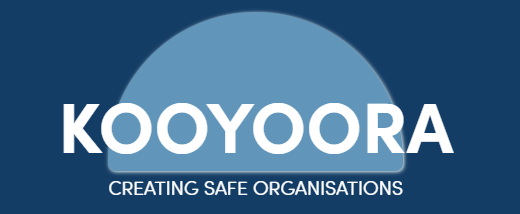Team Development Exercise: Film-Based Reflection on Safeguarding and Workplace Culture
Photo by Mason Kimbarovsky on Unsplash
Facilitating meaningful conversations about safeguarding and workplace culture can be challenging. This creative team development exercise engages the whole organisation in thoughtful reflection on the values, norms, beliefs, and behaviours that may contribute to harm in professional settings. By using film as a tool for discussion, teams can explore complex dynamics in a structured and approachable way.
Why Use Film for Reflection?
Film can be a powerful catalyst for dialogue and a unique medium for team learning. It takes abstract concepts—like power dynamics, ethical blind spots, or silent complicity—and makes them visible through story and character. Watching and reflecting on a film together helps teams step back and see these issues more clearly, sometimes even recognising patterns or behaviours that feel familiar. It can also offer new perspectives on issues that are difficult to name or fully see in one’s own environment.
Used thoughtfully, film becomes a starting point for deeper conversations:
What kind of culture are we creating—or allowing?
How do subtle behaviours impact others?
What more can we do to uphold safeguarding and organisational accountability?
How to Facilitate a Film-Based Reflection Session
This reflection activity is designed to be inclusive and accessible for all staff, regardless of role or background. Here’s how to facilitate it:
a) Choose a Relevant Film
Select a film that explores themes of workplace ethics, safeguarding, or systemic issues. We recommend The Assistant (2019), directed by Kitty Green as it highlights subtle but pervasive misconduct in a professional setting.
b) Organise a Group Viewing
Schedule a time to watch the film together, either in person or remotely. Be sure to create a safe, respectful space where everyone feels comfortable participating.
c) Facilitate a Guided Discussion
Use discussion questions to prompt meaningful conversation. Some examples include:
What workplace behaviours and dynamics did you notice in the film?
Did anything in the film reflect your own experiences?
How do subtle signs of misconduct contribute to toxic workplace cultures?
What can we do, individually and collectively, to build a more accountable and supportive workplace?
d) Connect Themes to Organisational Practice
Encourage the team to relate insights from the film to your organisation’s values and current safeguarding practices. What are we doing well? Where is there room for growth?
e) Capture Key Takeaways
Document the main points of discussion—including any actions, ideas, or commitments that emerge. Sharing these reflections across teams reinforces a commitment to ongoing workplace integrity and professional accountability.
Kooyoora’s Experience
As part of a recent team training day, we watched The Assistant (2019) to guide our reflection. Staff found the experience really positive and useful—not only for reflecting on our current safeguarding work, but also for exploring personal experiences and observations of organisational culture. It was a valuable reminder of the importance of creating regular opportunities for learning, listening, and shared growth.
Building Safe Culture Through Dialogue
Exercises like this do more than raise awareness—they help build trust, shared responsibility, and the confidence to act. By making time for reflection, we strengthen our commitment to safeguarding and lay the foundation for a more transparent, ethical, and supportive workplace for all.
Continue the Work: Practical Tools for Safer Organisational Culture
If you or your team would like more support in addressing organisational culture and strengthening safeguarding practices, download our free Abuse Prevention through Culture Change Framework. It offers practical guidance to help teams assess, reflect, respond, and build safer, more transparent organisational environments.



